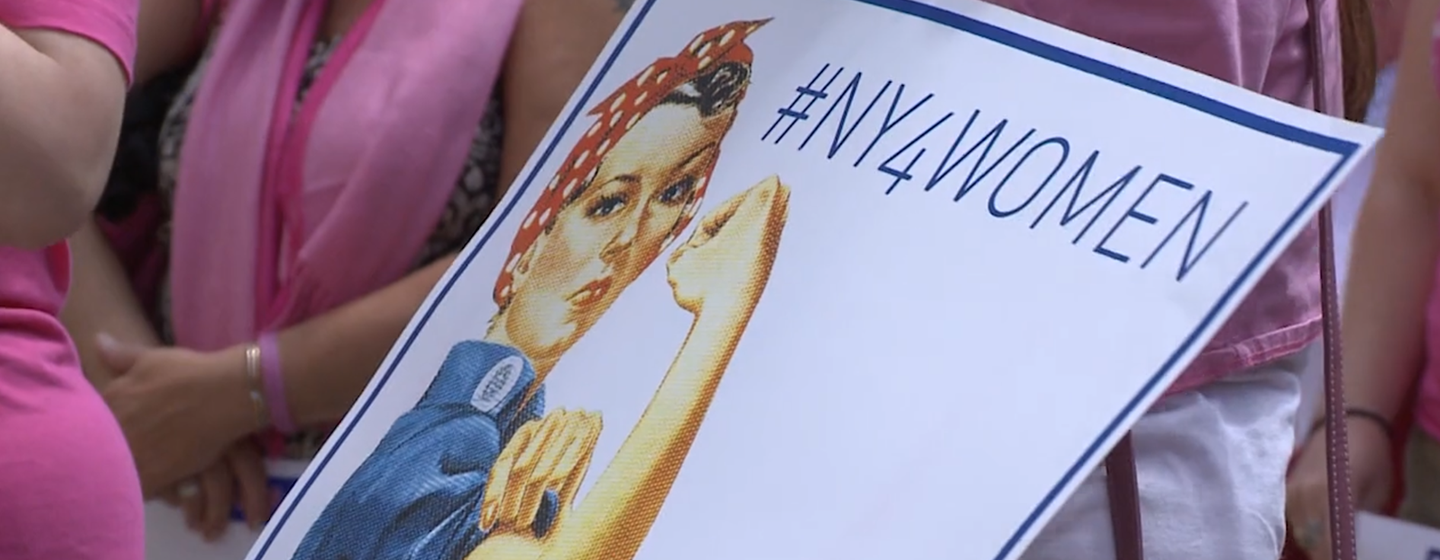It’s a big year for women in New York and across the nation. It was in 1920 – a century ago - that the United States ratified the 19th Amendment, guaranteeing women the right to vote.
Now, 100 years later, New York has multiple women serving in top positions in the state – Lt. Gov. Kathy Hochul, our first elected female attorney general, and our first female leader of the state senate.
New York State marked 100 years of women voting in 2017, a few years ahead of the country. The Empire State, after all, is home to Seneca Falls, arguably the epicenter of the women’s rights movement.
“We’ve made some enormous gains,” said Michelle Napierski-Prancl of The Women’s Institute at The Sage Colleges. “Much has happened in the blink of an eye. We haven’t had many of these rights for very long.”
Some significant dates include: 1963, the federal Equal Pay Act; 1974, the Equal Credit Opportunity Act which made it easier for women to apply for credit cards; and 1978, the Pregnancy Discrimination Act which outlawed firing women for being pregnant.
“We don’t realize how fragile those gains are,” Napierski-Prancl noted.
First in the Nation
In Gov. Andrew Cuomo’s 10th State of the State address, he listed the elimination of the Pink Tax as a priority. Studies showed that women can pay as much as 13 percent more for personal care items compared with similar items for men.
Cuomo has his sights on the passage of a first-in-the-nation, inclusive Equal Rights Amendment which would add sex, sexual orientation, and gender identify as protected classes.
“Because New York believes justice delayed for women is justice denied for women,” said Cuomo at his 2020 State of the State.
New Laws Passed
State Sen. Alessandra Biaggi, D-Bronx/Westchester, said the issue of equal pay goes deeper than state policy and law.
“Until a majority of people…understand that women and the work that they do are just as important as the work our male counterparts do – the law is not necessarily going to fulfill what we’re trying to do, which is change the culture and actually have equality,” said Biaggi, 34, who assumed her office in January 2019.
Lt. Gov. Kathy Hochul said she took a pay cut when she was a young attorney to land a job she was excited about, only to then learn that men in her office – who were not attorneys and did not have her experience – were making more money.
She touted the recently-approved Salary History Ban which states that employers can no longer ask about prior salary history, which is intended especially to help women earn what they should be earning and not a little more than what they were earning at their prior position, said Hochul. This was passed alongside the Equal Pay Act.
Napierski-Prancl noted, “Why don’t women make the same as men? When women, across the board, don’t make the same as men, there’s a problem.”
“Bigger than you”
Still, the women New York NOW interviewed said we have “a long way to go for equal rights” for women.
“This is an issue you take on because it’s bigger than you and you know that it’s not going to be solved in your lifetime…,” said Biaggi. “New Yorkers and New York women are just sensational. And we should give them everything that they need to do everything that they can to succeed. Because if you are born here, or you live here, or you come here, you’re limitless. That is what inspires me to be excited for and fight for the women’s agenda.”
Jessica Marshall and Nicole Van Slyke contributed to this news report.



